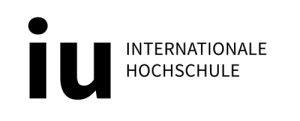
Childhood Education, Bachelor of Arts
Dual studies @ IU International University of Applied Sciences
At a Glance
| University | IU International University of Applied Sciences, UAS based in Erfurt |
|---|---|
| Field of Study | Social SciencesChildhood Education |
| Degree | Bachelor of Arts (B.A.) |
| Duration | 7 Semesters |
| ECTS | 180 Credit Points |
| Language of Instruction | German |
| Location | Aachen, Augsburg, Berlin, Bielefeld, Bochum, Bonn, Brunswick, Bremen, Chemnitz, Dortmund, Dresden, Duisburg, Dusseldorf, Erfurt, Essen, Frankfurt, Freiburg, Hamburg, Hanover, Karlsruhe, Kassel, Cologne, Kiel, Leipzig, Luebeck, Magdeburg, Mainz, Mannheim, Munich, Muenster, Nuremberg, Potsdam, Ravensburg, Regensburg, Rostock, Stuttgart, Ulm, Wuppertal, Wuerzburg or Virtual Campus |
| Enrollment | At specific dates |
| More Info | https://www.iu-dualesstudium.de |
Bookmarks
Your list of bookmarks is empty. Click to add and compare.

 DE
DE  This provider offers free info materials to download or send. Would you like to be redirected to the provider's website? There you will find much more information about the course.
This provider offers free info materials to download or send. Would you like to be redirected to the provider's website? There you will find much more information about the course.
Advisory Service
Have questions about Academic Programs Childhood Education? Ask your question here, even anonymously. An employee of the institution IU International University of Applied Sciences or the editorial team will answer you.
or post as a guest